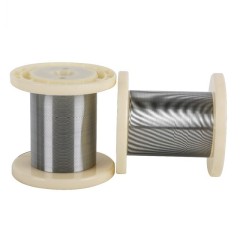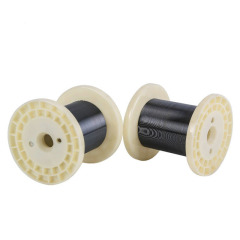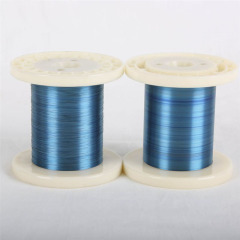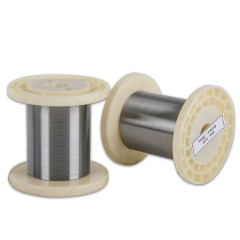



Super Elastic Nickel Titanium Shape Memory Alloy Nitinol Wires
18.0 USD
| Min. Order: | 15 Kilogram |
|---|---|
| Payment Terms: | WU |
| Place of Origin: | Jiangsu |
Company Profile
| Location: | Changzhou, Jiangsu, China (Mainland) |
|---|---|
| Business Type: | Manufacturer |
| Main Products: | Thermal Spray Wire |
Product Detail
| Width: | ≤300mm |
|---|---|
| Density: | 6.45g\Cm |
| Af: | -20~100ºC |
| Feature: | Superelastic and Shape Memory |
Product Description
Nitinol wire is a metal alloy, sometimes also called Shape Memory Alloy (SMA) wire.
Nitinol is an example of a "smart" material that undergoes changes between two solid phases, called the austenite and martensite phases, that involve rearrangement of its atoms within its crystal lattice. Nitinol is unusual in that it "remembers" its shape because the its crystal structure arrangement is not changed during a phase change.
| Conditions | Cold-Worked, Straight Strain Annealed, Shape Set Annealed |
| Surfaces | Shiny Black Oxide, Mechanically Polished, Ultrafine Polished, Customer Specific Requirements |
| Size | Diameters from 0.01mm to 5 mm and above |
| Length | Coils or Customers' Requests |
| Packing | Standard seaworthy packages or as your requests |

